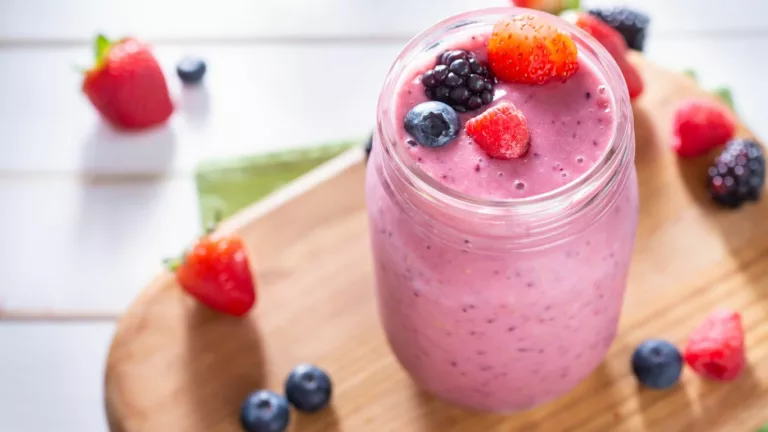7 Surprising Facts About Are Nuts Bad for GERD You Must Know
Ever found yourself snacking on a handful of almonds, only to be hit with that all-too-familiar burning sensation in your chest? If you have GERD, you might be wondering, are nuts bad for GERD? It’s a fair question because while nuts are packed with healthy fats and nutrients, they can also be a trigger for acid reflux. Let’s dive into the nutty truth about GERD and see if they belong in your diet or if it’s time to say goodbye to your favorite snack.
Can Nuts Trigger GERD Symptoms?

As someone who has worked with many GERD patients over the years, I’ve seen firsthand how nuts affect different people in different ways. Some can eat a handful without any issue, while others feel the burn almost instantly. But why?
The answer lies in their fat content. Nuts—especially cashews, walnuts, and macadamia nuts—are high in fat, and fatty foods tend to relax the lower esophageal sphincter (LES). When this happens, stomach acid can easily creep up into the esophagus, triggering reflux symptoms.
Which Nuts Are the Biggest Offenders?
Not all nuts are created equal when it comes to GERD. Some are worse than others:
- Cashews: High in fat and known to trigger reflux.
- Walnuts: Packed with omega-3s but also high in fat, making them a risky choice.
- Macadamia Nuts: Delicious but loaded with fat, which can worsen GERD.
Are Any Nuts Safe for GERD?
Good news—there are some GERD-friendly nuts! These options tend to be lower in fat and easier on the digestive system:
- Almonds (in moderation): Raw or unsalted almonds can be okay for some people, but roasted almonds might trigger reflux.
- Pecans: Lower in fat than walnuts and generally less irritating.
- Pistachios: Contain less fat than many other nuts and may be better tolerated.
How to Eat Nuts Without Triggering GERD

If you love nuts but struggle with GERD, you don’t necessarily have to cut them out completely. Here are some tips to help you enjoy them safely:
- Stick to small portions: A handful (about 1 ounce) is usually a safe amount.
- Avoid salted or flavored nuts: Spices and added oils can trigger reflux.
- Eat them with other foods: Pairing nuts with something low-acid, like oatmeal or yogurt, can help reduce symptoms.
- Keep a food diary: Track how different nuts affect you to identify personal triggers.
So, are nuts bad for GERD? The answer isn’t black and white. Some nuts can definitely worsen symptoms, while others may be safe in moderation. The key is knowing your triggers and making adjustments based on your own body’s response.
How Different Types of Nuts Affect GERD

By now, you might be wondering—if some nuts are worse than others, what makes them so different? The answer lies in their fat content, fiber levels, and how your digestive system reacts to them. Let’s take a closer look at how common nuts impact acid reflux.
High-Fat Nuts: The GERD Troublemakers
Fatty foods relax the lower esophageal sphincter (LES), which acts like a gatekeeper between your stomach and esophagus. When the LES relaxes too much, stomach acid flows back up, causing that dreaded burning sensation.
- Macadamia Nuts: These are some of the fattiest nuts out there, making them a potential trigger.
- Cashews: Not only are they high in fat, but they also contain compounds that may stimulate acid production.
- Walnuts: While rich in omega-3s, they can be heavy on digestion, making GERD symptoms worse for some people.
Lower-Fat Nuts: Better Choices for GERD
If you love nuts but want to keep your acid reflux in check, opting for lower-fat varieties is a good strategy. These nuts may be easier to digest:
- Almonds: A better choice when eaten raw, though roasted or salted varieties might cause issues.
- Pistachios: Lower in fat compared to macadamias or walnuts, making them a gentler option.
- Pecans: Generally well-tolerated, but portion control is still key.
Nut Butter and GERD: Safe or a Hidden Trigger?

For many people, nut butters—like peanut butter or almond butter—are a kitchen staple. But if you have GERD, are they safe?
The answer? It depends on the type of nut and how it’s prepared. Let’s break it down:
Nut Butters That May Trigger GERD
- Peanut Butter: Even though peanuts aren’t technically nuts (they’re legumes), peanut butter is a common acid reflux trigger because of its high-fat content.
- Cashew Butter: Like whole cashews, cashew butter is high in fat and might not sit well with sensitive stomachs.
Nut Butters That Are Easier on Digestion
- Almond Butter: A lower-fat option that’s often better tolerated than peanut butter.
- Pistachio Butter: Less acidic and gentler on the stomach.
When choosing nut butter, go for unsweetened, natural varieties with minimal added oils and sugars. Also, pairing it with a reflux-friendly food—like whole grain toast or oatmeal—can help reduce symptoms.
Tips for Eating Nuts Without GERD Flare-Ups
If you love nuts and don’t want to cut them out completely, here are some strategies to enjoy them without suffering the consequences:
- Eat Smaller Portions: Stick to a small handful (about 1 ounce) to avoid overwhelming your digestive system.
- Chew Thoroughly: Nuts take longer to break down, so chewing well can ease digestion.
- Pair with Non-Acidic Foods: Mixing nuts with GERD-friendly foods can make them easier to tolerate.
- Avoid Eating Nuts Before Bed: Nighttime reflux is the worst, so steer clear of nuts in the evening.
- Test and Track: Keeping a food diary can help you pinpoint which nuts work for you.
At the end of the day, GERD triggers vary from person to person. Some people might handle almonds just fine, while others find even a small amount of peanut butter leads to heartburn. It’s all about experimenting and finding what works for your body.
Case Studies & Real-Life Examples

GERD affects everyone differently, and when it comes to nuts, personal experience speaks volumes. Let’s take a look at a few real-life cases that illustrate how nuts impact acid reflux.
Case 1: The Almond Experiment
Sarah, a 38-year-old teacher, loved snacking on almonds. She thought they were a healthy alternative to processed snacks, but every time she ate them, she noticed a burning sensation in her chest. After tracking her diet, she realized that roasted almonds triggered her GERD symptoms more than raw ones. When she switched to soaking almonds overnight before eating them, her symptoms improved significantly.
Case 2: Peanut Butter vs. GERD
James, a 45-year-old fitness enthusiast, swore by peanut butter for its protein content. However, he often experienced acid reflux after his post-workout snack. After some trial and error, he discovered that switching to almond butter (in moderation) significantly reduced his discomfort. Turns out, peanut butter’s high-fat content and density made digestion tougher for him.
Case 3: The Walnut Dilemma
Lisa, a 52-year-old with long-standing GERD, had mixed experiences with nuts. She loved walnuts in her oatmeal, but eating them on their own made her reflux unbearable. After consulting her doctor, she learned that pairing walnuts with a low-acid, high-fiber meal—like oatmeal—helped reduce symptoms.
Key Takeaways: What You Need to Remember
By now, you probably have a good idea of how nuts can impact GERD. But let’s break it down into some key takeaways:
- High-fat nuts like macadamias, walnuts, and cashews are more likely to trigger GERD symptoms.
- Lower-fat nuts such as almonds, pistachios, and pecans are generally easier on digestion.
- Portion control matters: Even GERD-friendly nuts can cause problems if eaten in large amounts.
- Nut butters can be tricky—peanut butter is often a trigger, but almond butter might be a safer choice.
- Pairing nuts with non-acidic foods can help reduce reflux symptoms.
- Soaking nuts may improve digestion and reduce their impact on acid reflux.
FAQs
Are all nuts bad for GERD?
No, not all nuts are bad for GERD. Some people tolerate almonds and pistachios well, while others may react badly to cashews and walnuts. It depends on individual tolerance, portion sizes, and how they’re consumed.
Can I eat peanut butter if I have GERD?
It depends. Peanut butter is high in fat, which can relax the lower esophageal sphincter and trigger reflux. If you must have it, opt for natural peanut butter with no added oils or sugars, and eat it in small amounts.
Are roasted nuts worse for acid reflux than raw nuts?
In many cases, yes. Roasted nuts often have added oils and salt, which can aggravate GERD symptoms. Raw or soaked nuts are generally better tolerated.
What’s the safest way to eat nuts with GERD?
Eat nuts in moderation, choose lower-fat options, chew thoroughly, and pair them with non-acidic foods. Avoid eating them late at night or on an empty stomach.
Bonus: Additional Resources & DIY Tips
Managing GERD isn’t just about avoiding certain foods—it’s about creating an overall digestive-friendly lifestyle. Here are some additional resources:
And here are some quick DIY tips for keeping acid reflux at bay:
- Try herbal teas like chamomile or ginger after meals to aid digestion.
- Chew sugar-free gum to stimulate saliva production and neutralize acid.
- Eat smaller meals throughout the day instead of large ones.
- Stay upright after eating—lying down immediately can worsen reflux.
- Keep a food diary to track what triggers your symptoms.
Appendix: References, Disclaimer & Call to Action
For more in-depth reading, check out these references:
Disclaimer: This article is for informational purposes only and should not replace professional medical advice. If you have persistent GERD symptoms, consult a healthcare provider.
Struggling with GERD and need more personalized diet tips? Subscribe to my newsletter for expert insights on managing acid reflux naturally!

Camellia Wulansari is a dedicated Medical Assistant at a local clinic and a passionate health writer at Healthusias.com. With years of hands-on experience in patient care and a deep interest in preventive medicine, she bridges the gap between clinical knowledge and accessible health information. Camellia specializes in writing about digestive health, chronic conditions like GERD and hypertension, respiratory issues, and autoimmune diseases, aiming to empower readers with practical, easy-to-understand insights. When she’s not assisting patients or writing, you’ll find her enjoying quiet mornings with coffee and a medical journal in hand—or jamming to her favorite metal band, Lamb of God.







